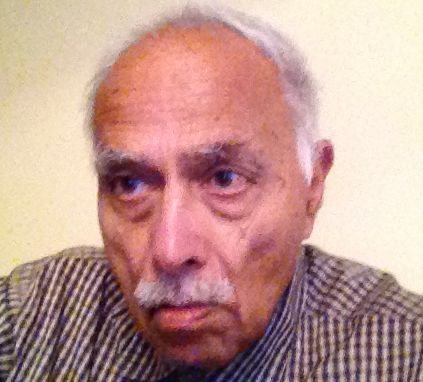Latest Contributions
Read More Contributions
India’s First Independence Day
Category:

Dr. Anand - an unholy person born in 1932 in the holy town of Nankana Sahib, central Punjab. A lawyer father, a doctor mother. Peripatetic childhood - almost gypsy style. Many schools. Many friends, ranging from a cobbler's son (poorly shod as the proverb goes) to a judge's son. MB from Glancy (now Government) Medical College Amritsar, 1958. Comet 4 to Heathrow, 1960.
Widower. Two children and their families keep an eye on him. He lives alone in a small house with a small garden. Very fat pigeons, occasional sparrows, finches green and gold drop in to the garden, pick a seed or two and fly away.
I was then fifteen years old. We lived in what was to become Pakistan. Several months before that happened, discretion being the better part of valour, my father, his sister, and his brother rented a bungalow in Solan, Simla Hills. The younger generation reached there separately in the summer - as soon as our, i.e., children's, schools and colleges closed.
Solan was the capital of a small "native state" to use the terminology of the British Raj.
The ruler was called Raja Sahib, and I heard him described as HH. Presumably the British Government had conferred the "His Highness" style of address or title on him.
The Raja was a Hindu. His few thousand subjects were mostly Hindu. A very few Muslims lived in the little town. An exception was the Muslim colonel of the Maharaja of Kapurthala's army. He had a massive stone-built house where he often lived (at least he did on 15 Aug 1947) with his daughter who was in her early teens
In the case of my immediate family, my maternal grandmother was with us. As was always the case, she dropped everything to come and look after us
My mother was a doctor in Punjab Government Service. She had opted to be transferred to an East Punjab hospital (which would be part of India, not Pakistan) but had not received transfer orders. Therefore, she was still at her post in Lahore when we last heard from her - several days before 15 August. My maternal grandfather had left his village to bring my grandmother to look after us. He was at Lahore with my mother.
Came the fifteenth of August. I did not feel the slightest emotion of joy. All my family thought of was - Where is my mother? Is she alive? Is she safe?
My mother and maternal grandfather were in Lahore, while my father, my maternal grandmother, my brother and sister were at Solan.
Total breakdown of post and telegraph services. So, no communications.
Did my mother receive the "transfer order" to take charge of the Women's Section at Civil Hospital at Ludhiana in the Eastern Part of Punjab, since she had opted for India?
By government rules, she was required to stay at Lahore until "relieved" by the next incumbent.
If she did receive the "transfer order" and was "relieved", was she able to get to the Railway Station with my grandfather, catch a train to the East, stay safe on the train till the train reached an area safe for the migrants to the East? No doubt, those who had to move to the West were equally at risk of being slaughtered in THEIR land of birth.
We could not bear the anxiety. A few days after 15 August 1947, my father left us, the children, in the care of my grandmother. He put on his trousers and shoes, carried his umbrella in one hand, and in the other, a tiny briefcase in which he also carried a tiny thermos containing water, and a couple of parathas.
He started walking. Along the empty road, towards Kalka. There were, of course, no buses, no trains. Not even tongas.
A few miles down a passing truck carrying stones kindly gave him a lift. After some miles, he got another lift - from an army truck.
Thus he went to Kalka, from where a bus took him to Ambala. Then by a train to Ludhiana. He was lucky to find by chance, the bus and the train. Few people dared to travel then. The sights were not pleasant.
From Ludhiana railway station, he walked to the Hospital. The roadside was again not fit to be described.
My mother and grandfather were there. Safe. Alive.
Epilogue
Looking back at the political situation, I think India and Nehru did the dirty on Khan Abdul Gaffar Khan and Dr Khan Sahib. They were Gandhi's steadfast supporters, but Nehru let them be gobbled up by Jinnah (Quaid-i -azam).
______________________________________
© Joginder Anand 2017
Add new comment